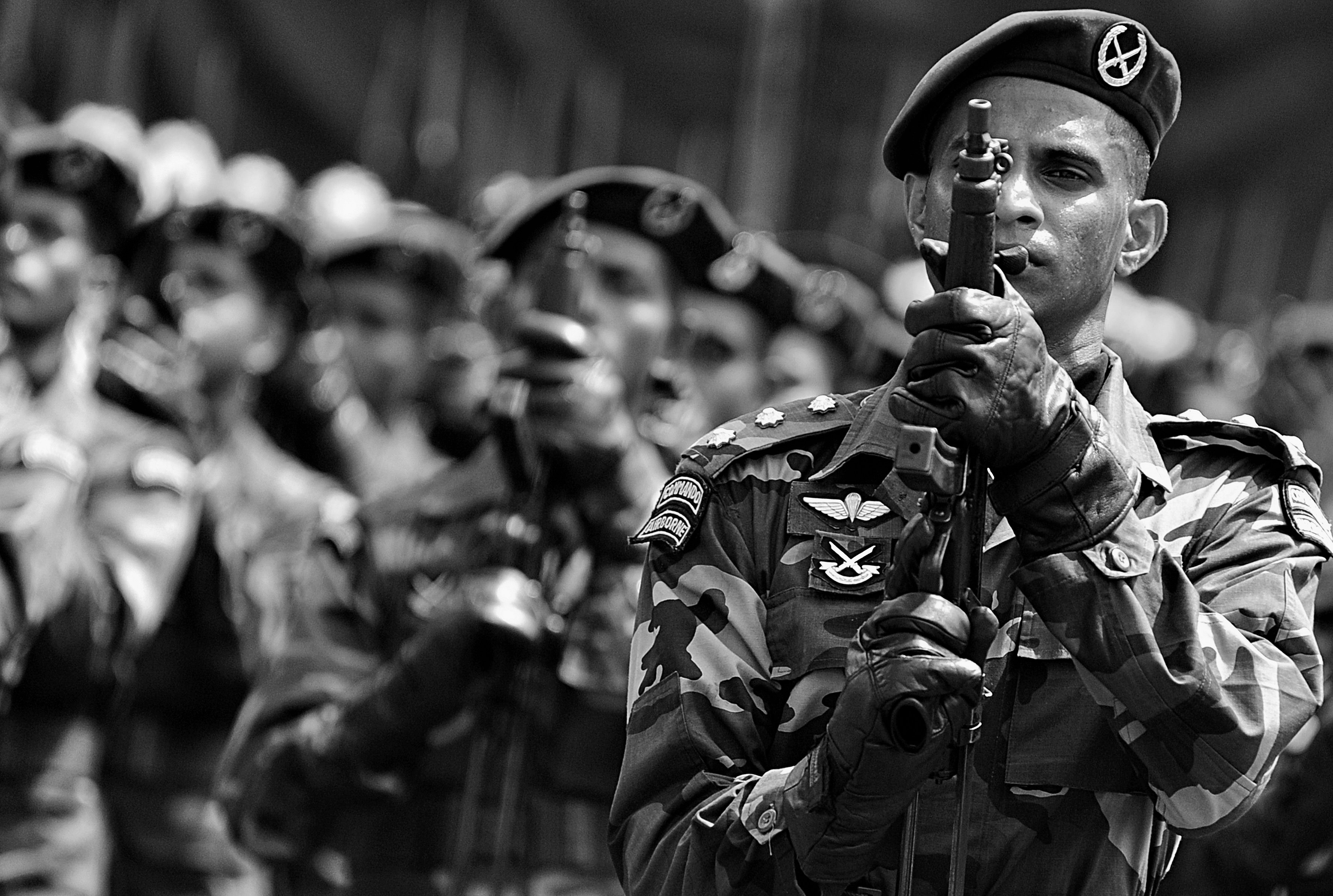Image: Sri Lanka Army by globalriskinsights.com.
A wide-ranging Right to Information Act request was filed with the Army on Saturday, requesting details of how state resources have been used to aid soldiers and officers accused of attacks on media personnel and to confirm or deny whether the army has spied on the police and public officers investigating those attacks.
The request, filed by Sunday Leader journalist Nirmala Kannangara, covers “legal, financial and personal assistance” including “advice, money and material resources” with a special focus on the practice of retaining private lawyers to appear for suspects and paying for their fees with public funds.
The request also seeks information on any army involvement in physical or electronic surveillance of “police officers, prosecutors, magistrates or other public functionaries involved in investigating, prosecuting, or ruling” on the criminal investigations into the murder of Lasantha Wickrematunge, the disappearance of Prageeth Eknaligoda, the assault on Upali Tennekoon and the abduction and assault of Keith Noyahr.
The purpose of the request, it reads, is to discover “whether funds of the state, or other material resources or state services including in particular the services of serving military personnel have been mobilised for the purpose of defending, protecting, supporting or advancing the interests of military personnel who are alleged, suspected or accused of having committed serious criminal offences which in no way could be attributed to protecting national security or countering terrorism.”
According to the RTI Act, the army would have 14 days to respond to the request with a decision to either provide the requested information or reject it, and then a further 14 days to provide the information if the request is approved.
While no legal basis exists for any state entity to spend public funds or utilise Government resources to defend public servants facing criminal charges, several reports have suggested that the army may have made exception for military intelligence officers facing criminal charges for the murder, disappearance, assault and abduction of journalists
FT
